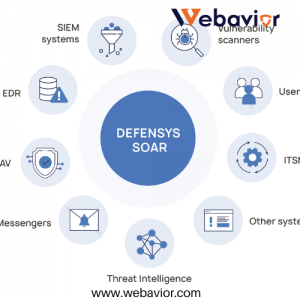The shift to remote work has transformed how businesses operate, with over 60% of companies now supporting hybrid or fully remote teams, according to recent studies. However, this flexibility comes with heightened cybersecurity risks, such as data breaches and unauthorized access. A robust solution like a VPN gateway can safeguard your remote workforce by ensuring secure connections to your company’s network. In this blog, we’ll explore how to protect your distributed team with practical steps, real-world benefits, and tips to avoid common pitfalls, making your remote work environment both secure and efficient.
Understanding the Remote Work Security Challenge
Remote work has surged, with employees accessing company systems from home Wi-Fi, coffee shops, or shared spaces. This introduces vulnerabilities like unsecured networks, phishing attacks, and man-in-the-middle threats. For example, a 2024 report found that 70% of remote workers faced phishing attempts, and unsecured connections led to millions in data breach costs. Without proper safeguards, sensitive data—customer records, financial details, or intellectual property—can be exposed. A centralized security solution is critical to protect remote employees and maintain business continuity. Also read How to Secure Your Business Network with Advanced Tools
What is a VPN Gateway and Why It Matters
A VPN gateway is a secure entry point that connects remote users to your private network, encrypting data and ensuring only authorized users gain access. It acts as a digital gatekeeper, routing all traffic through a secure tunnel. This is especially vital for remote workforces, as it:
- Protects Data: Encrypts sensitive information, preventing interception.
- Ensures Compliance: Helps meet regulations like GDPR or HIPAA.
- Simplifies Access: Allows employees to securely connect to company resources from anywhere.
For businesses, this means peace of mind, knowing that remote workers can operate securely, whether they’re in a different city or country.
Key Features of a VPN Gateway for Remote Workforce Security
A VPN gateway offers several features tailored to remote work security:
- Strong Encryption: Uses protocols like AES-256 to protect data from cyber threats.
- Scalability: Supports growing teams, from small startups to large enterprises.
- Centralized Management: Allows IT admins to monitor connections and control access policies.
- Multi-Factor Authentication (MFA): Adds an extra layer of security by requiring multiple credentials.
For instance, MFA can block unauthorized logins, even if passwords are compromised. These features collectively reduce risks, ensuring your remote workforce operates securely and efficiently.
Steps to Implement a VPN Gateway for Your Remote Workforce
Implementing a VPN gateway doesn’t have to be complex. Follow these actionable steps to secure your remote team:
- Assess Your Needs: Evaluate your team size, data sensitivity, and compliance requirements. For example, a healthcare company may prioritize HIPAA compliance, while a tech startup focuses on scalability.
- Choose the Right Solution: Select a VPN gateway that fits your needs—cloud-based options like AWS VPN or on-premises solutions like Cisco AnyConnect. Compare features like encryption strength and ease of use.
- Set Up the Infrastructure: Install the VPN gateway on a server or use a cloud provider. Configure user authentication (e.g., MFA) and set access policies to restrict sensitive resources.
- Train Your Team: Educate employees on secure usage, such as connecting to the VPN gateway before accessing company systems and avoiding public Wi-Fi without it.
- Monitor and Maintain: Regularly update the software to patch vulnerabilities and review access logs for suspicious activity.
Tip: Use strong, unique passwords and enable automatic updates to keep the system secure.
Real-World Benefits and Case Studies
A VPN gateway delivers measurable benefits for remote workforces:
- Enhanced Security: A small marketing firm reduced data breach incidents by 80% after implementing a VPN gateway, protecting client campaigns.
- Compliance: A healthcare provider used a VPN gateway to meet HIPAA requirements, avoiding hefty fines.
- Productivity: A tech company enabled seamless access to cloud-based tools, boosting employee efficiency by 20%.
These examples show how a VPN gateway not only secures data but also supports business growth and compliance.
Common Mistakes to Avoid When Using a VPN Gateway
To maximize effectiveness, steer clear of these pitfalls:
- Skipping Updates: Outdated software can expose vulnerabilities. Schedule regular updates to stay protected.
- Neglecting Training: Employees may bypass the VPN if not trained properly. Provide clear guidelines and regular refreshers.
- Choosing a Subpar Solution: Low-quality VPN gateways may lack robust encryption or scalability. Research reputable providers like Fortinet or Palo Alto Networks.
By avoiding these mistakes, you ensure your VPN gateway delivers reliable security for your remote workforce. To avoid mistakes and learn more visit Webavior.
Conclusion
Securing your remote workforce is non-negotiable in today’s digital landscape. A VPN gateway provides a powerful, centralized solution to protect data, ensure compliance, and enable seamless access for employees, no matter where they work. By assessing your needs, choosing the right solution, and following best practices, you can create a secure and productive remote work environment. Evaluate your current setup today and consider implementing a VPN gateway to safeguard your business. Have questions or experiences to share? Drop them in the comments below!







